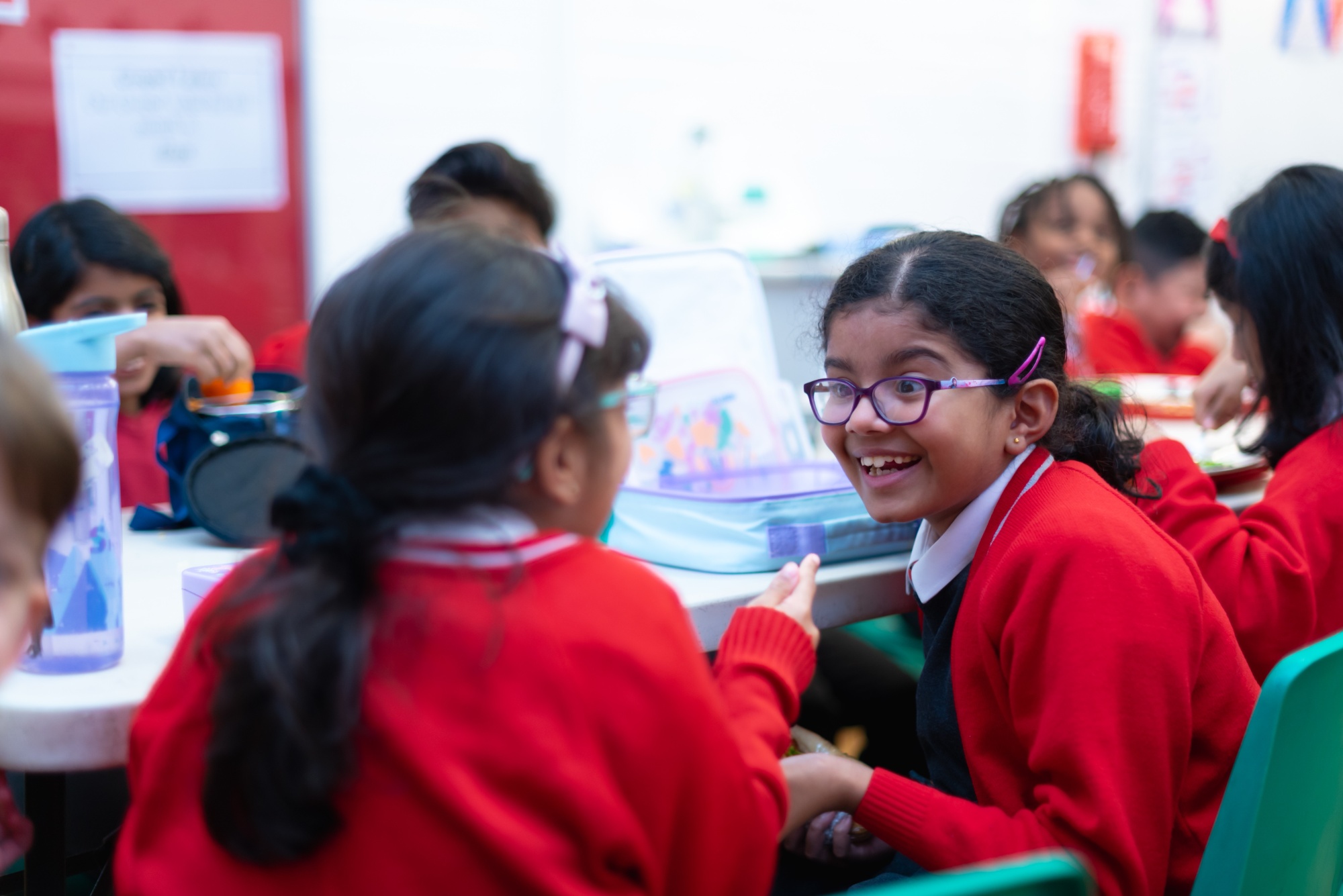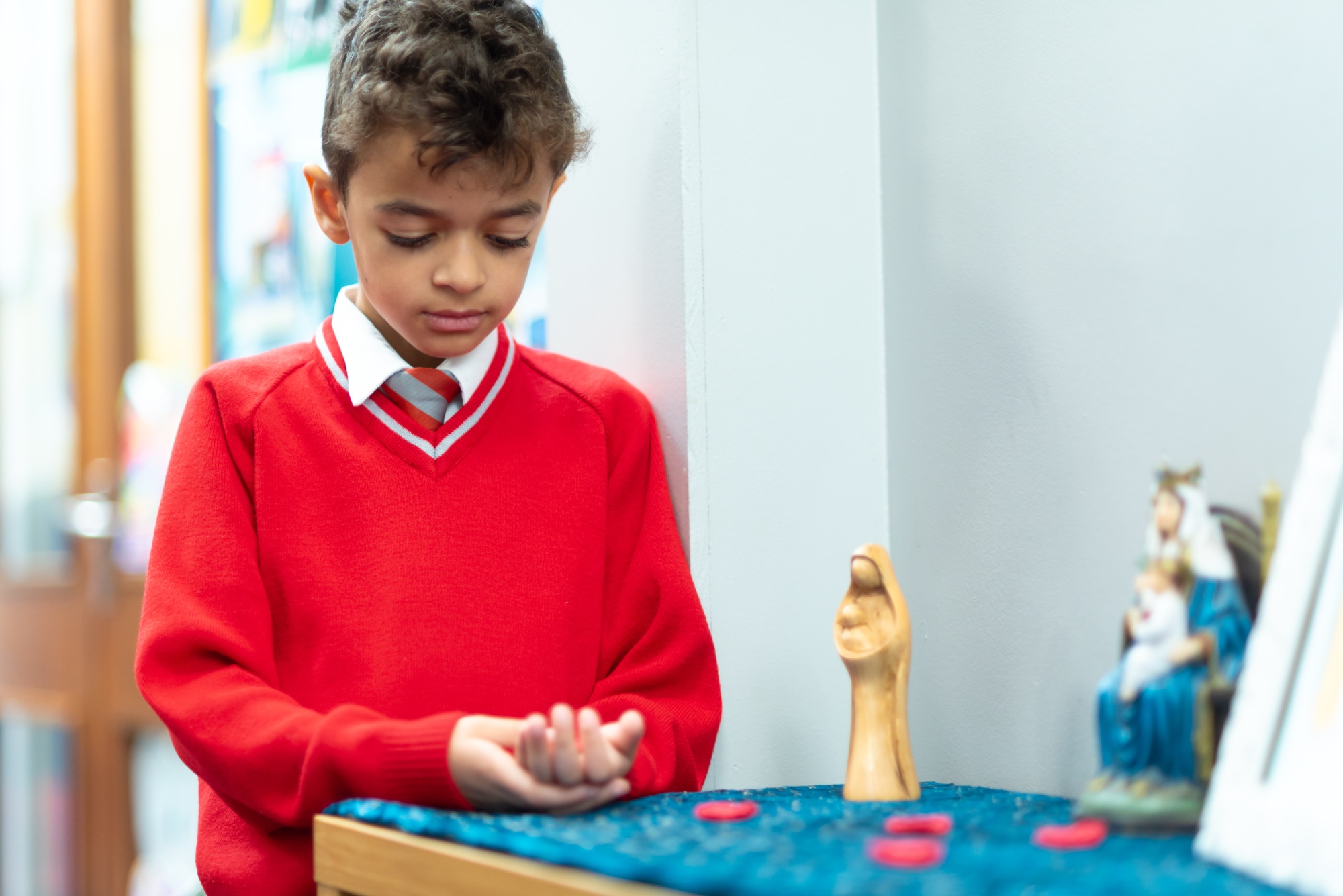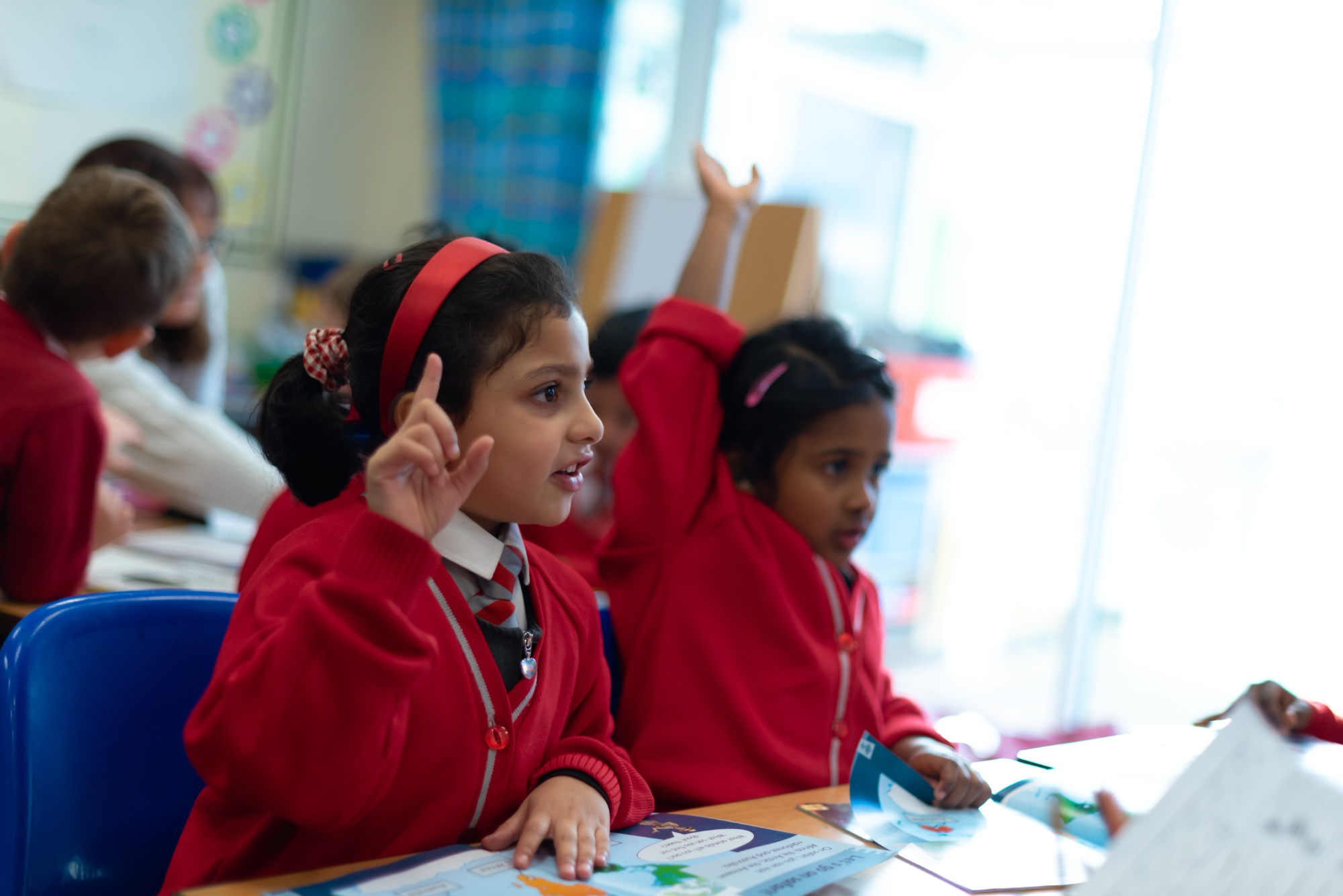Phonics
Subject leader: Mrs K Mortimer
At Sacred Heart, we use Little Wandle, a DfE approved, systematic synthetic phonics programme. The Little Wandle vision is to “teach reading and change lives”. They, and we as a school, believe that every child should be supported to learn to read and should love reading!
Children will have daily phonics lessons in Reception, Year 1 and at the start of Year 2. We also provide additional daily ‘Rapid Catch Up’ sessions for children in Year 2 and KS2, who need additional support with phonics and reading.
As part of our phonics provision, children will read in a group with an adult, three times a week. Their book is matched to the sounds and tricky words that they know and the children are re-assessed regularly.
Intent
Phonics (reading and spelling)
At Sacred Heart Catholic Primary School, we believe that all our children can become fluent readers and writers. This is why we teach reading through Little Wandle Letters and Sounds Revised, which is a systematic synthetic phonics programme. We start teaching Little Wandle Foundations in Reception and follow the Little Wandle Letters and Sounds Revised progression, which ensures children build on their growing knowledge of the alphabetic code, mastering phonics to read and spell as they move through school. As a result, all our children are able to tackle any unfamiliar words as they read.
At Sacred Heart Catholic Primary School, we also model the application of the alphabetic code through phonics in shared reading and writing, both inside and outside of the phonics lesson and across the curriculum. We have a strong focus on language development for our children because we know that speaking and listening are crucial skills for reading and writing in all subjects.
Comprehension
At Sacred Heart Catholic Primary School, we value reading as a crucial life skill. By the time children leave us, they read confidently for meaning and regularly enjoy reading for pleasure. Our readers are equipped with the tools to tackle unfamiliar vocabulary. We encourage our children to see themselves as readers for both pleasure and purpose.
Because we believe teaching every child to read is so important, we have a Reading Leader who drives the early reading programme in our school. This person is highly skilled in teaching phonics and reading, and they monitor and support our reading team, so everyone teaches with fidelity to the Little Wandle Letters and Sounds Revised programme.
Implementation
Daily phonics lessons in Reception and Year 1
-
We teach phonics for 25 minutes each morning. We also teach an additional 25-minute lesson in the afternoon to either address gaps and revise prior learning or to teach new content, depending on the needs of the class.
-
In Reception, we build from 10-minute lessons, with additional daily oral blending games, to full-length lessons as quickly as possible. Each Friday, we review the week’s teaching to help children become fluent readers.
-
Children make a strong start in Reception: teaching begins in week 2 of the Autumn term.
-
Children in Reception are taught to read and spell words using Phase 2 and 3 GPCs, and words with adjacent consonants (Phase 4) with fluency and accuracy.
-
Children in Year 1 review Phases 3 and 4 and are taught to read and spell words using Phase 5 GPCs with fluency and accuracy.
Daily Keep-up lessons ensure every child learns to read
-
Any child in Reception and Year 1 who needs additional practice has Daily Keep-up support and is taught by a fully trained adult.
-
Daily Keep-up lessons follow the Little Wandle progression and use the same procedures, resources and mantras, but in smaller steps with more repetition so that every child secures their learning.
Daily phonics in Year 2
-
Year 2 begins by using assessment to ensure that children have completed the Little Wandle Year 1 progression. Any gaps in teaching are addressed through daily phonics lessons until the programme is completed. Corresponding summative assessments are carried out to ensure this content is secure.
-
Children with larger gaps in their phonic knowledge than their peers follow the Rapid Catch-up programme.
Children in Year 2 to Year 6: Rapid Catch-up
-
We timetable daily phonics lessons for any child in Year 2 and above who is not at age-related expectations for reading or has not passed the Phonics Screening Check. These children urgently need to catch up, so the gap between themselves and their peers does not widen.
-
These short, sharp lessons last 15 to 20 minutes daily and have been designed to ensure children quickly catch up to age-related expectations in reading.
-
We assess children who are new to our school, new to the country or new to English using the Rapid Catch-up assessments to quickly identify their needs.
-
We use the Rapid Catch-up assessments to identify the gaps in children’s phonic knowledge and teach these using the Rapid Catch-up resources – at pace.
-
We assess children every four weeks using the Rapid Catch-up summative assessments to assess progress and inform teaching.
Teaching reading in EYFS and Year 1: Reading practice sessions three times a week
-
We teach reading practice sessions three times a week in EYFS and Year 1. These sessions:
-
are taught by a fully trained adult to small groups of approximately six children
-
use books matched to the children’s secure phonic knowledge
-
are monitored by the class teacher, who rotates and works with each group on a regular basis.
-
Each reading practice session has a clear focus, so that the demands of the session do not overload the children’s working memory. The reading practice sessions have been designed to focus on three key reading skills:
-
decoding: teaching children to use phonic knowledge to read words
-
prosody: teaching children to read with understanding and expression
-
comprehension: using dialogic talk to help children to understand the text.
-
In Reception, these sessions start in week 4 of teaching at the latest. Initially, children will read wordless books. In these sessions, children review GPCs and are taught blending using teacher-led blending. Once children can blend, they progress onto decodable books matched to their secure phonic knowledge.
-
Children read each book three times to develop phonemic awareness, vocabulary and comprehension as well as book behaviours.
-
Reading in Rapid Catch-up lessons mirrors the core programme. Children following the Rapid Catch-up programme are taught to read using the 7+ fully decodable books. These follow the same progression as the core programme but are more appropriate for older readers.
Home reading
-
The decodable reading practice book (Celebration Book) is taken home to ensure success is shared with the family.
-
Reading for Pleasure books (Sharing Books) also go home for parents to share and read to children.
-
We use the Little Wandle Letters and Sounds Revised parents’ resources to engage our families and share information about phonics, the benefits of sharing books, how children learn to blend and other aspects of our provision, both online and through workshops.
Additional reading support for vulnerable children
-
Children in Reception and Year 1 who are receiving additional phonics Daily Keep-up sessions read their reading practice book regularly to an adult in school.
-
We prioritise children who may not have reading support at home or who may not have access to books. We ensure that they have individual reading times with volunteers and staff to share quality children’s literature to promote a love of reading.
Ensuring consistency and pace of progress
-
Every teacher in our school has been trained to teach reading, so we have the same expectations of progress. We all use the same language, routines and resources to teach children to read so that we lower children’s cognitive load.
-
Weekly content grids map each element of new learning to each day, week and term for the duration of the programme.
-
Lesson templates, prompt cards and ‘How to’ videos ensure teachers all have a consistent approach and structure for each lesson.
-
The Reading Leader and SLT use checklists and templates to regularly monitor and observe teaching; they use the summative data to identify children who need additional support and have gaps in learning.
Ensuring Reading for Pleasure
‘Reading for pleasure is the single most important indicator of a child’s success’ (OECD 2002).
‘The will influences the skill and vice versa’ (OECD 2010).
We highly value Reading for Pleasure (RfP) and work hard as a school to grow our RfP pedagogy.
-
We read aloud to children every day. We choose these books carefully as we want children to experience a wide range of books, including those that reflect the children at Sacred Heart Catholic Primary School and our local community as well as books that open windows into other worlds and cultures.
-
Every classroom has an inviting book corner that encourages a love for reading. We curate these books and talk about them to entice children to read a wide range of books.
-
In Reception, children have access to the reading corner every day in their free-flow time and the books are continually refreshed.
-
Children choose from our range of carefully chosen books to take home and share with an adult.
-
As children progress through school, we take time to get to know them as readers and ensure that we engage in meaningful conversations about the books that they have read. By doing this we can recommend authors and genres of books to expand their interests.
Impact
Assessment
Assessment is used to monitor progress and to identify any child needing additional support as soon as they need it.
-
Assessment for Learning (AfL) is used:
-
daily within class to identify children who require Daily Keep-up support, as well as words and GPCs that need additional teaching
-
to plan repeated practice throughout the day to ensure all children secure learning
-
weekly in the Friday review lesson to assess gaps, address these immediately and secure fluency of GPCs, words and spellings.
-
Summative assessments are uploaded onto the Assessment tracker for Reception and Year 1. These are used:
-
to generate visual reports (pupil heatmaps, pupil trends and books levels, and a summary analysis) for individual children, classes and whole year groups
-
by teachers, Reading Leaders and SLT who drill down and look at the data at GPC, word, tricky word and sentence level
-
by SLT to scrutinise and plan how to narrow the attainment gaps between different groups of children and to put in place any additional support for teachers.
We assess:
-
every six weeks to assess progress and to identify gaps in learning that need to be reviewed or retaught
-
to establish if learning is secure for more than 70% of children before new content is taught
-
to identify any children needing additional support and to plan the Daily Keep-up support that they need.
Every three weeks, we reassess every child who is not on track.
-
Children in the Rapid Catch Up Programme are assessed every four weeks.
-
Year 2 children can exit the Rapid-Catch-up programme when they can read the final fluency assessment at 60-70+ words per minute.
-
Older children can exit the Rapid Catch-up programme when they read the final fluency assessment at 90+ words per minute. At these levels, children should have sufficient fluency to tackle any book at age-related expectations. After exiting their programme, children do not need to read any more fully decodable books.
-
A placement assessment is used:
-
with any child new to the school in Reception and Year 1 to quickly identify any gaps in their phonic knowledge and to plan and provide appropriate extra teaching.
Statutory assessment
-
Children in Year 1 sit the Phonics Screening Check. Any child not passing the check
resits it in Year 2.
The document below shows the progression of our phonics teaching throughout EYFS and Year 1. However, although the order of sounds and tricky words taught will always remain the same, we may re-teach a unit where necessary. We regularly assess the children’s knowledge of sounds, blending and tricky words and we may re-visit a unit before moving on, to ensure that the vast majority of children are keeping up with the pace of the programme.
Useful links for parents:
Correct pronunciation of the Phase 2 and 3 sounds: For parents | Letters and Sounds

















